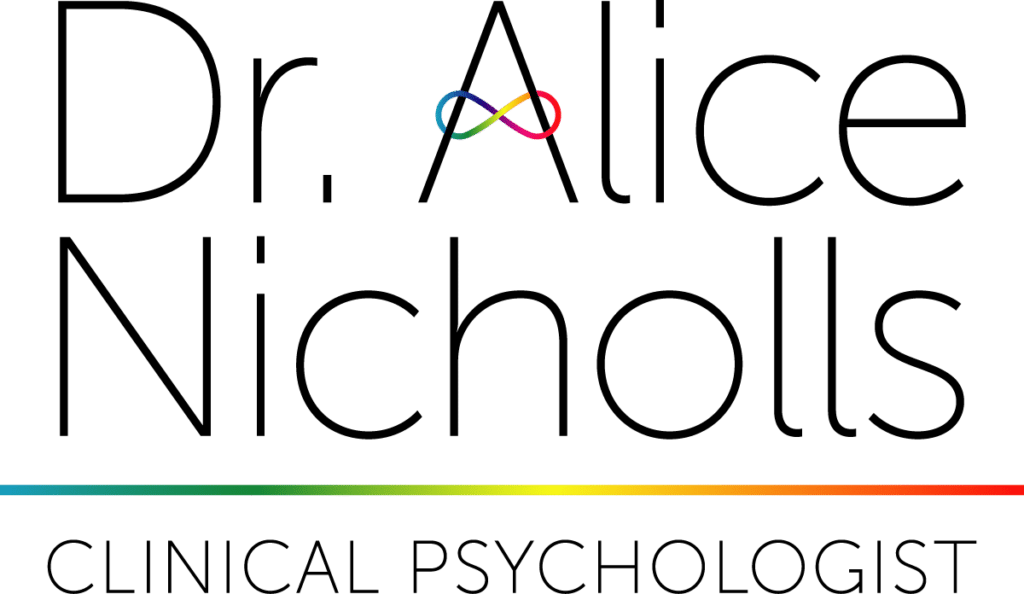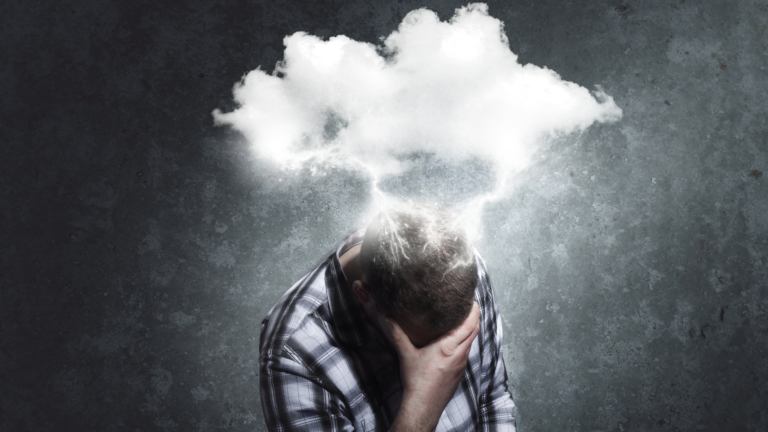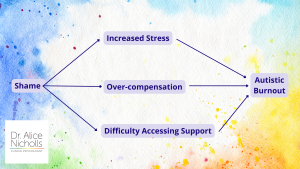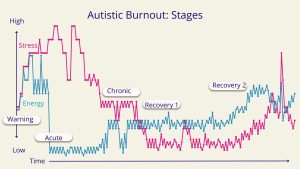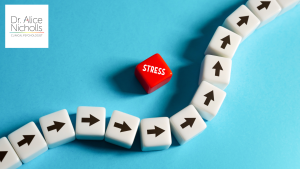Are you feeling exhausted, overwhelmed and depleted?
If you are (or suspect you are) Autistic then you are likely to be wondering:
Am I in Autistic Burnout?
Maybe you’ve heard a little bit about Autistic Burnout but not enough to be sure about whether it applies to you. This article will help you decide whether or not your symptoms could be explained by burnout.
Although Autistic Burnout is not an official diagnosis, it is starting to attract attention from researchers as a common problem amongst Autistic adults and a frequent topic of conversation within the Autistic community.
Click here for my post on ‘What is Autistic Burnout?’
So What are the Symptoms of Autistic Burnout?
Researchers have begun to realise that people describing burnout are referring to a common set of symptoms that are distinct from depression and occupational burnout.
These symptoms fall into six categories:
- Physical Symptoms
- Cognitive Symptoms
- Executive Functioning Symptoms
- Social Symptoms
- Emotional Symptoms
- Sensory Symptoms
Physical Symptoms
Autistic people in burnout describe feeling exhausted and depleted. As if all of their internal reserves have been used up. These symptoms are not better explained by being physically unwell, malnourished, or having engaged in excessive exercise.
Some burnout people describe finding it difficult, or even impossible to get out of bed and feeling an increased need to sleep.
Cognitive Symptoms
Cognitive symptoms of burnout mirror the physical symptoms, people feel mentally exhausted, unable to think clearly. Some autistic people describe losing the ability to process information that they would have previously been fine with. You might find yourself listening to someone speak, knowing they have said something, but being unable to process what the meaning of the words was.
Your thinking may be working as usual but feel slower and more effortful. Perhaps you are struggling to concentrate or focus for longer than a few minutes at a time. Burntout autistic people describe finding it harder to solve problems than usual and difficulty finding the right words to express what they want to say.
Some autistic people find it hard to remember facts, skills or words and may worry they are losing their memory.
Executive Functioning Symptoms
Executive functioning is our ability to plan, organise and problem solve.
In burnout, autistic people find it harder to plan and struggle more than usual with unexpected changes in routine. You might find yourself sticking to routines more than usual and becoming more distressed when things don’t go to plan.
Alternatively you may find it difficult to get started with your usual routines and might feel stuck when you have to shift between activities.
Decision making may be more difficult than usual and you might find yourself avoiding making decisions by procrastinating or letting other people choose
Social Symptoms
Socialising can be difficult at the best of times, but during autistic burnout social interactions can feel even more difficult than usual. You might feel increased discomfort during social interactions or you may find yourself avoiding them altogether.
Talking to people or interacting via text or email may feel like too much effort. You might feel unable to attend events and gatherings you would usually manage.
It might take longer than usual to think of the right responses in conversations and eye contact may feel more stressful than usual. If you usually ‘mask’ by consciously selecting an appropriate facial expression or playing a ‘role’ in social situations you may find yourself unable to do this, or it may feel more draining than usual.
Emotional Symptoms
You may feel more emotional than usual and find yourself unable to manage your emotions in the way you normally would. Even if you struggle to identify exactly what the emotion is, you may know you are feeling ‘overwhelmed’ or ‘bad’. You may find these intense feelings of discomfort come on quickly and are triggered by relatively small events. Autistic people often find they experience an increase in meltdowns and shutdowns when they are burnt out. You may also notice that meltdowns or shutdowns are more intense and take longer to recover from.
Sensory Symptoms
If you are hypersensitive to certain sensory stimuli you are likely to find this gets worse during burnout. You may also become aware of sensitivities you had not previously noticed. For example you may start to be bothered by the noise of other people chewing, the smell of the washing up sponge, or the sound of the computer fan.
You might find that you feel an increased need to stim (stimulation seek) and that you are less able to mask this. For example you might find yourself making more noises, rocking, or chewing more.
You may find that you seek out certain foods more or that you settle into a pattern of eating that feels the most comforting to you. This might mean you eat the same foods each day, or have a small range of foods on rotation.
The Autistic Burnout Symptom Checklist
If you think you are experiencing Autistic Burnout you might find this checklist helpful.
The Autistic Burnout Symptom Checklist is a compilation of the most commonly reported symptoms of Autistic Burnout. The more of these that apply to you, the more likely you are to be experiencing burnout.
Click here to get access to the Autistic Burnout Symptom Checklist.
Even if you are only experiencing a few of the symptoms, this may be enough to cause significant suffering and disruption in your life, as such there is no cut off score. It might be useful to print off the checklist and take it with you to discuss each response with your therapist.
The Cycle of Autistic Burnout
Autistic Burnout seems to follow a distinct pattern in terms of how it starts and ends. Please see my article on The Cycle of Autistic Burnout for more information.
Health Warning
Please be aware that many of the symptoms of Autistic Burnout have a significant overlap with other health conditions. If you haven’t already discussed your symptoms with your GP it would be wise to visit the GP to rule out other potential causes.
I have drafted a letter for you to take to your GP which lists things your GP may want to consider testing for, you will get access to this template when you download the Autistic Burnout Symptom checklist or sign up for my free course.
Summary
While Autistic burnout is not an official diagnosis, it is a common experience in Autistic people and people with a diagnosis of ASD, ASC or Asperger’s syndrome.
Symptoms normally include exhaustion, fatigue, difficulty thinking, concentrating, planning and organising, increased difficulty with emotional and sensory regulation and managing social demands.
If you would like to know how to get out of Autistic Burnout please read my article on How to Get out of Autistic Burnout.
I am an Autistic Clinical Psychologist specialising in Autistic Burnout if you would like to know more about my work please check out my:
- Mailing list community for people who want to receive helpful information and resources about Autistic Burnout.
- Free short course on How to Break the Cycle of Autistic Burnout (link goes straight to registration page)
- Authenticity Basecamp: A 90 day support programme for people in the early stages of recovering from Autistic Burnout who want to get calmer, clearer and more supported.
- Authenticity: The Course and Community: For late-realised, high-masking Autistic adults who want to build more sustainable, authentic lives and break free of the cycle of Autistic Burnout for good.
